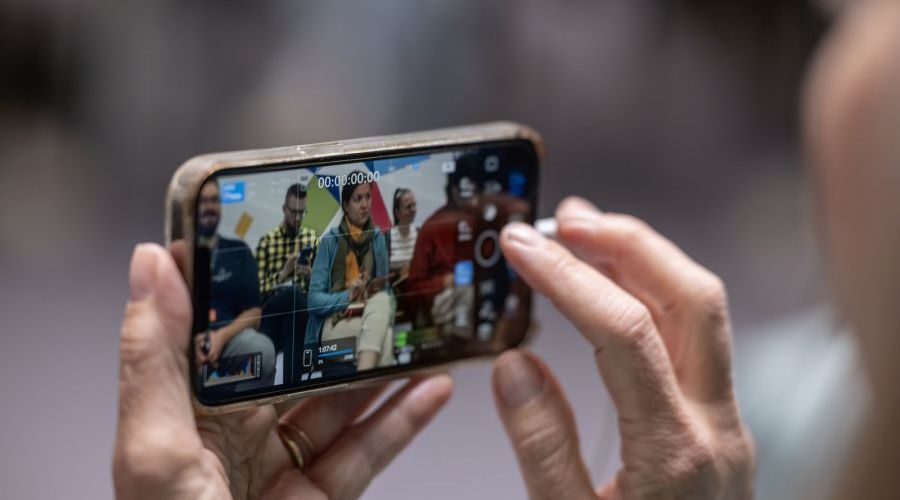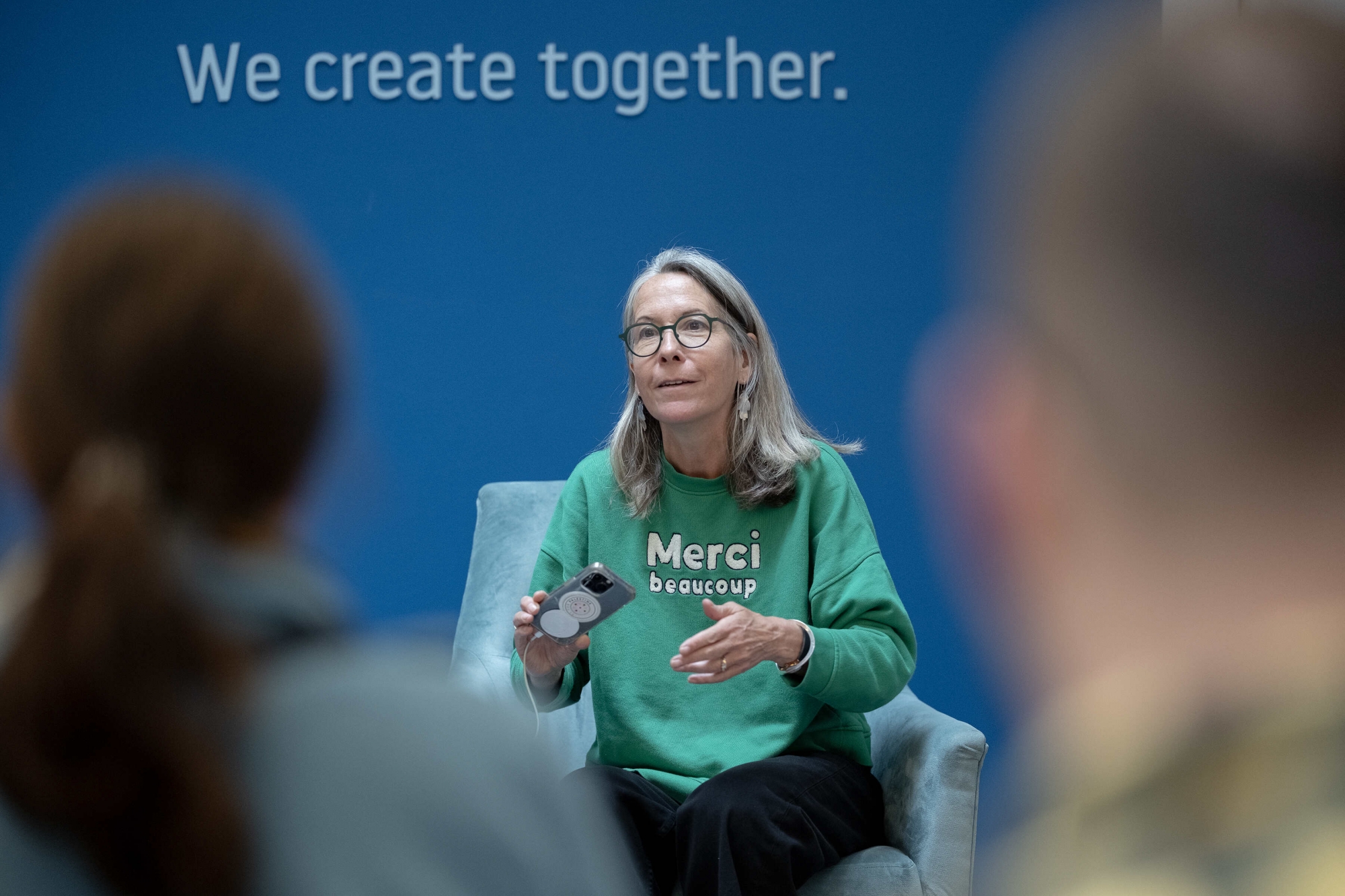AJB DOC training session for young regional authors: Can a smartphone be used as an alternative to a film camera?
The "Smartphone Documentary Film Production" workshop is a great chance for participants to learn about the potential of using smartphones to record and document stories.

A three-day training session titled "Smartphone Documentary Film Production" is a part of the Al Jazeera Balkans International Documentary Film Festival (AJB DOC), which takes place from September 13th to 17th in Sarajevo.
A long-term employee of Al Jazeera Balkans, video journalist Faris Bajrić and the director of Beechtobeach Ltd. Jane Mote lead the course for a selected group of participants. The activity is organized in cooperation with the Al Jazeera Media Institute and supported by Samsung as a part of the "Women Lead the Way towards Peace and Security in Bosnia and Herzegovina" project and Europe House.
This course teaches participants to examine methods of engaging with content by filming documentaries with a smartphone while providing insight into filming techniques. Furthermore, they will learn to apply the acquired skills and choose appropriate mechanisms for interacting with the audience.
The potential of using smartphones
"Documentary filmmakers generally only use smartphones to capture short scenes, although it is possible to do much more using the right apps and tools to super-charge smartphone capabilities", says Mote, adding that she has shot and edited some of her films using only her phone.
"These films have screened in cinemas, so there is no quality barrier if you have the right knowledge and kit", she emphasized.
She added that the workshop she is hosting is a hands-on opportunity for the participants to upgrade their skills by trying out new apps, understanding how to make the sound quality, stability and lighting more professional and learning the basics of editing on a smartphone. Within the framework of the practical part of the workshop, the participants will learn how to create and share content whilst testing out their new ideas.
"I believe storytelling is much more important than the type of camera you use. Everyone must have the access and the ability to tell the story creatively, but it is also crucial to convey the stories of their protagonists safely and confidentially," said Mote.
"Of course, we can't shoot every documentary film with a smartphone but with the impact of a great story told by a talented director, it is possible to overcome all technical difficulties," she pointed out.

She added that, by using a smartphone, one has a huge advantage in filming intimate or sensitive scenes or getting into new locations.
She also wondered if it would be possible for us to record so many scenes in Gaza without smartphones.
In conclusion, she added that the film "Writing with Fire", awarded by the Programme Department Jury at the 4th AJB DOC Film Festival, is a great example of how people i.e. journalists "armed" with smartphones, are changing the world around them.
The Best Idea Award
The "Smartphone Documentary Film Production" training will be held from 14th to 16th September.
Upon training completion, the participants will have 30 days to develop their ideas for a smartphone documentary film. The training facilitator and representatives of the Organizer will then select the best idea for realization and award it with a prize of 1500 euros, a Samsung sponsorship award and mentoring support in the filming process.
Besides that, award-winning projects will be screened at the next edition of the AJB DOC Film Festival as a part of the SmartDoc selection, created exclusively for young authors who use new technologies.
The partner of this year's training is the "Women Lead the Way towards Peace and Security in Bosnia and Herzegovina" project, which is implemented under the auspices of the United Nations Secretary General's Peacebuilding Fund in Bosnia and Herzegovina (PBF) in partnership with the Ministry of Human Rights and Refugees of Bosnia and Herzegovina. The project is led by the UN Resident Coordinator in BiH and implemented jointly by UN Women, the International Organization for Migration (IOM) and the United Nations Population Fund (UNFPA).
About Jane Mote and Faris Bajrić
Jane Mote is a journalist who moved from newspapers to join the BBC, where she set up and ran BBC London on TV, radio and online. She has held senior roles at commercial broadcasters (Discovery, Turner, UKTV). She was MD of the UK arm of Al Gore’s documentary channel Current TV and created London Live for the London Evening Standard. Besides directing and producing documentaries, she loves helping people to tell their stories effectively on film and smartphones. She is also a trainer for the BFI (British Film Institute) and Women in Film and TV. She mentors documentary makers worldwide and is an Editorial Consultant for the documentary fund The Whickers.
Faris Bajrić was born in Sarajevo in 1983. He has over twenty years of experience as an ENG camera operator. During the last nine years, he has worked as a VJ (video journalist) and is one of the creators of the AJB video platform that produces video content for social networks. Since completing MOJO (Mobile Journalism) courses in Berlin and Sarajevo, he has been actively using mobile phones to create video content.